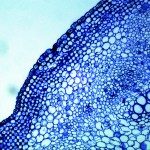Link to Pubmed [PMID] – 28785545
Front Cell Infect Microbiol 2017;7:330
The opportunistic pathogen () is a major cause of nosocomial- and community-acquired infections. In addition, many antibiotic-resistant strains are emerging worldwide, thus, there is an urgent unmet need to pinpoint novel therapeutic and prophylactic strategies. In the present study, we characterized the impact of infection with the pandemic methicillin-resistant USA300 strain on human primary dendritic cells (DC), key initiators and regulators of immune responses. In particular, among staphylococcal virulence factors, the function of EsxA and EsxB, two small acidic dimeric proteins secreted by the type VII-like secretion system Ess (ESAT-6-like secretion system), was investigated in human DC setting. A comparative analysis of bacterial entry, replication rate as well as DC maturation, apoptosis, signaling pathway activation and cytokine production was performed by using wild type (wt) USA300 and three isogenic mutants carrying the deletion of (Δ), (Δ), or both genes (Δ). The mutant lacking only the EsxA protein (Δ stimulated a stronger pro-apoptotic phenotype in infected DC as compared to wt USA300, Δ, and Δ strains. When the mutant carrying the deletion (Δ) was analyzed, a higher production of both regulatory and pro-inflammatory mediators was found in the infected DC with respect to those challenged with the wt counterpart and the other mutants. In accordance with these data, supernatant derived from Δ-infected DC promoted a stronger release of both IFN-γ and IL-17 from CD4 T cells as compared with those conditioned with supernatants derived from wild type USA300-, Δ-, and Δ-infected cultures. Although, the interaction of with human DC is not yet fully understood, our data suggest that both cytokine production and apoptotic process are modulated by Esx factors, thus indicating a possible role of these proteins in the modulation of DC-mediated immunity to .

